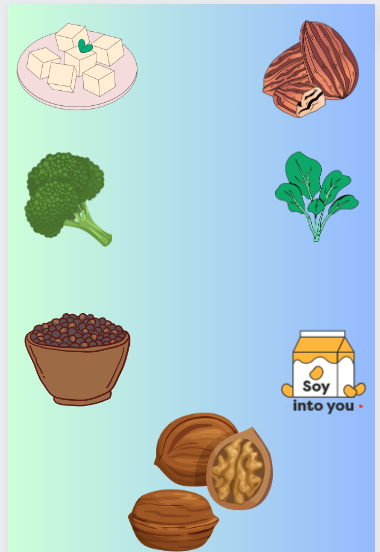The Rich Tapestry of Vegetarian Proteins: A Dive into Indian Cuisine
In a world increasingly mindful of health and sustainability, the spotlight on vegetarian protein has never been brighter. Protein is an essential macronutrient that plays a crucial role in the proper functioning of the human body. This introduction sets the stage for a journey into the realm of plant-based nutrition, highlighting the myriad benefits and dispelling common misconceptions. As we delve into the enriching world of vegetarian protein sources in India, our focus remains on unlocking the true potential of plant-powered sustenance.
First of all let me tell you why you need protein in your life as well as in your diet:
Cellular Structure and Function: Proteins are the building blocks of cells, tissues, and organs. They are essential for the structure and function of cells, helping to maintain and repair the body’s tissues.
Muscle Growth and Repair: Protein is particularly important for muscle growth and repair. When you engage in physical activities, especially resistance training or exercise that puts stress on your muscles, protein is necessary for the repair and rebuilding of muscle tissues.
Enzymes and Hormones: Many enzymes and hormones in the body are proteins, and they play critical roles in various biochemical processes. Enzymes facilitate chemical reactions, while hormones regulate a wide range of physiological functions, such as metabolism and growth.
Immune Function: Proteins are integral to the immune system. Antibodies, which help the body defend against infections and diseases, are proteins. A sufficient intake of protein supports the proper functioning of the immune system.
Transportation of Molecules: Proteins are involved in the transportation of various substances, such as oxygen, nutrients, and waste products, throughout the body. Hemoglobin, for example, is a protein that transports oxygen in the blood.
Energy Source: While carbohydrates and fats are the primary sources of energy, the body can use protein as an energy source when necessary. However, the main role of protein is not energy production, and it is more efficiently utilized for other functions.
Maintaining Fluid and pH Balance: Proteins help maintain the balance of fluids and electrolytes in the body, contributing to proper hydration and pH regulation.
Structural Proteins: Certain proteins, such as collagen and elastin, provide structural support to connective tissues, skin, and other body structures. Collagen, for example, is crucial for the strength and elasticity of skin, tendons, and ligaments.
Blood Clotting: Proteins are involved in the blood clotting process. Without adequate protein, the body may have difficulty forming blood clots, which is essential for wound healing and preventing excessive bleeding.
Satiety and Weight Management: Including protein in your diet can help increase feelings of fullness and reduce overall calorie intake, making it beneficial for weight management and maintaining a healthy body composition
Majority of India’s population is vegetarian and they are dependent on vegetarian food for completion of their protein intake.Indian cuisine is a vibrant tapestry woven with a rich array of vegetarian proteins. From the protein-packed pulses to the versatility of dairy, this section explores the cultural and culinary diversity that defines vegetarianism in India. Each region contributes its unique flavors and protein sources, offering a tantalizing exploration of the vegetarian bounty found in Indian kitchens.
Protein Prowess: Exploring the Best Plant-Based Options in the Indian Kitchen
Here, we embark on a culinary journey through the heart of the Indian kitchen, uncovering the protein prowess of plant-based options. From lentils and chickpeas to the nutritional powerhouse that is spinach, discover the essential ingredients that form the backbone of vegetarian meals in India. These plant-based treasures not only add flavor but also ensure a protein-packed diet.
From Dal to Tofu: A Comprehensive Guide to Vegetarian Proteins in India
Let us delve into the details of quintessential Indian protein sources, exploring the nuances of lentils, legumes, and the protein-rich soy marvel – tofu. This comprehensive guide navigates the culinary landscape, offering insights into the preparation, nutritional benefits, and the diverse ways these ingredients are celebrated in Indian households.
Nourishing Nuts and Legumes: The Cornerstones of Indian Vegetarian Protein
Go beyond the conventional as we explore the cornerstones of Indian vegetarian protein – nuts and legumes. Uncover the nutritional powerhouses such as almonds, peanuts, and a variety of lentils, all playing a crucial role in meeting daily protein requirements. Learn how these humble ingredients transform into delectable dishes, contributing to a wholesome and balanced diet.
Beyond Paneer: Lesser-Known Veg Protein Gems in Indian Cooking
While paneer is celebrated, this section sheds light on lesser-known vegetarian protein gems that often go unnoticed. Explore the likes of moringa, chia seeds, and jackfruit, discovering how these hidden treasures add a nutritional punch to Indian meals, expanding the spectrum of vegetarian protein choices.

Meeting Your Protein Quota: How to Build a Balanced Plant-Based Diet in India
Building a balanced plant-based diet requires careful consideration of nutritional needs. This section provides practical insights into crafting well-rounded meals that not only meet protein quotas but also ensure a spectrum of essential nutrients. Learn about portion control, meal planning, and the art of combining diverse ingredients for optimal health.
Protein-packed Paradox: Busting Myths about Vegetarian Protein in Indian Culture
Dispelling myths surrounding vegetarian protein in Indian culture is crucial for fostering a holistic understanding. Explore common misconceptions and unravel the truth about the protein-packed paradox that Indian cuisine presents. Addressing concerns and providing evidence-backed insights, this section aims to empower readers with accurate information.
Protein-packed Paradox: Busting Myths about Vegetarian Protein in Indian Culture
Dispelling myths surrounding vegetarian protein in Indian culture is crucial for fostering a holistic understanding. Explore common misconceptions and unravel the truth about the protein-packed paradox that Indian cuisine presents. Addressing concerns and providing evidence-backed insights, this section aims to empower readers with accurate information.

In India, dietary choices, including the consumption of non-vegetarian food, are often influenced by cultural, regional, and religious factors. India is known for its diverse population, and different communities may have distinct dietary practices based on their religious beliefs and traditions.It’s crucial to recognize the diversity in dietary practices across different religious and cultural groups in India. These practices are often deeply rooted in tradition and can vary widely even within the same religious community. Additionally, individual choices may be influenced by factors such as personal beliefs, regional customs, and family traditions.
Veg Protein on a Plate: Crafting Delicious and Nutritious Indian Meals
There are plenty of plant-based sources of protein that can be incorporated into a vegetarian or vegan diet. Here are some examples of vegetarian sources of protein:
Legumes:
- Lentils
- Chickpeas (garbanzo beans)
- Black beans
- Kidney beans
- Peas
Beans:
- Black beans
- Pinto beans
- Navy beans
- Fava beans
Soy Products:
- Tofu
- Tempeh
- Edamame (young soybeans)
- Soy milk
Whole Grains:
- Quinoa
- Brown rice
- Barley
- Bulgur
- Farro
Nuts:
- Almonds
- Walnuts
- Pistachios
- Cashews
Seeds:
- Chia seeds
- Flaxseeds
- Sunflower seeds
- Pumpkin seeds (pepitas)
- Sesame seeds
Dairy and Dairy Alternatives:
- Greek yogurt
- Cottage cheese
- Cheese
- Plant-based yogurt (made from soy, almond, coconut, etc.)
- Plant-based cheeses
Vegetables:
- Broccoli
- Spinach
- Brussels sprouts
- Asparagus
Whole Wheat Products:
- Whole wheat bread
- Whole wheat pasta
- Whole wheat couscous
Plant-Based Protein Powders:
- Pea protein
- Rice protein
- Hemp protein

The Future of Food: Sustainable and Nutrient-Rich Plant-Based Proteins in India
As we look ahead, the blog concludes by exploring the future of food in India. Discover the sustainable and nutrient-rich plant-based proteins that are gaining prominence. From innovations in food technology to the growing popularity of plant-based alternatives, this section provides a glimpse into the evolving landscape of vegetarian protein in the Indian culinary scene.